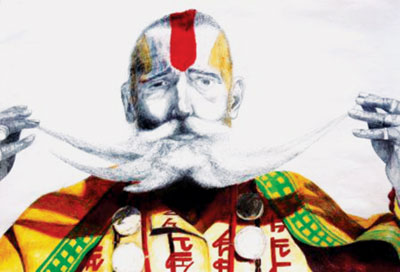All Nonfiction
- Bullying
- Books
- Academic
- Author Interviews
- Celebrity interviews
- College Articles
- College Essays
- Educator of the Year
- Heroes
- Interviews
- Memoir
- Personal Experience
- Sports
- Travel & Culture
All Opinions
- Bullying
- Current Events / Politics
- Discrimination
- Drugs / Alcohol / Smoking
- Entertainment / Celebrities
- Environment
- Love / Relationships
- Movies / Music / TV
- Pop Culture / Trends
- School / College
- Social Issues / Civics
- Spirituality / Religion
- Sports / Hobbies
All Hot Topics
- Bullying
- Community Service
- Environment
- Health
- Letters to the Editor
- Pride & Prejudice
- What Matters
- Back
Summer Guide
- Program Links
- Program Reviews
- Back
College Guide
- College Links
- College Reviews
- College Essays
- College Articles
- Back
Censorship
When Thoreau was sitting on the peaceful shores of Walden Pond contemplating nonconformity, or sitting in jail writing the essay, “Civil Disobedience” (following his arrest for protesting the Mexican War and slavery), it is doubtful that he could foresee the extremes to which the Shock Jocks of today have taken the First Amendment’s right to free speech. What would Thoreau think of the words of Howard Stern and Rush Limbaugh?
The speech of today’s shock jocks as broadcasted over the radio and television frequently do not conform to standards of decency, even by today’s lenient standards. The favorite topics of the shock jocks seem to involve kinky sex, bathroom humor, and anything that is politically incorrect. The shock jock speech of today would certainly disturb Thoreau upon its initial assault on his ears; however, I believe that upon further thought and consideration, Thoreau would be happy that America has embraced the First Amendment to the point where it does not censor offensive speech.
Granted, the principles of beauty, idealism, and human equality that Thoreau embraced in his writings are not usually the types of speech that the shock jocks engage in. In fact, the words of the shock jock can be considered hateful and vile at times. For example, in 1995, Howard Stern mocked the death of Selena, a hispanic musician who had been murdered. His words were so disrespectful and loathsome, that some people sought to have him censored. Shock jocks who go too far can be fined for their offensive speech, but these fines seem to have little effect.
In response to this type of revolting and disgusting speech of the shock jocks, the American Government introduced The Broadcast Decency Enforcement Act of 2005. This Act increased the punishment for violating decency guidelines by upping the amount of regulatory fines by twenty times their former amount. What would Thoreau think of this?
I believe that Thoreau would continue to be anti-censorship and find that there is a place for the shock jocks of America in the world of ideas. He might not choose to invite Howard Stern or Rush Limbaugh to dinner, but he would argue against the suppression of speech, even offensive speech. Indeed, when Thoreau was writing in the mid-1800s, his ideas were often considered politically incorrect, objectionable, and/or possibly harmful to society. Thoreau knew firsthand that censorship is often used to impose the moral values of one segment of the population on the whole of society and he was definitely against that.
When Thoreau wrote his famous essay, Civil Disobedience, he encouraged citizens to speak honestly and frankly about what they believed in, and in this way, the people could create the type of government that they desired. I am sure that Rush Limbaugh also buys into this concept. Thoreau might not agree with Limbaugh’s vision of what the American Government should or should not be, but I believe that Thoreau would approve of the frankness with which Limbaugh is allowed to speak and communicate his views.
Even when speech is considered to be hateful, politically incorrect or off-color, Thoreau felt that the speaker had a right to communicate honestly. He was a great believer in allowing people to speak their own version of “The Truth.” Although each man and woman had to right to speak honestly, it must be said that there were times that Thoreau valued the right to remain silent. This might be because when people speak, they often just like to hear the sound of their own voices, in words that lack any aspect of truth or insight. Thoreau could have been talking about the obnoxious ramblings of the multitudes of shock jocks on the radio today when he wrote, “the gregariousness of man is their most contemptible and discouraging aspect.”
Still, Thoreau would have stood up for the right of the shock jocks to have “diarrhea of the mouth,” because it would mean that other more thoughtful, mindful/spiritual, and intellectual speakers would also have the right to express their ideas without fear of censorship. Indeed, Emerson called his friend, “The Terrible Thoreau,” because of the frank and open way he spoke and wrote. Thoreau wrote that he held out hope for the ordinary people to speak frankly, noting that “a cross man, a course man, an eccentric man...” are more likely to speak out truth with a capital “T” than the erudite gentlemen who follow each other’s ideas like sheep, not knowing why. I think if is fair to describe many of today’s shock jocks as cross, course, and/or eccentric. In this way, Thoreau would be pleased as the ease with which they can express their ideas, especially if the ideas do not conform to the status quo politically correct systems in place.
In conclusion, Thoreau would be pleased with the First Amendment’s evolution in today’s society, which embraces a counter culture movement and anti-censorship stance. As Thoreau stated, “let your life be a counter friction to stop the machine.”

Similar Articles
JOIN THE DISCUSSION
This article has 0 comments.
